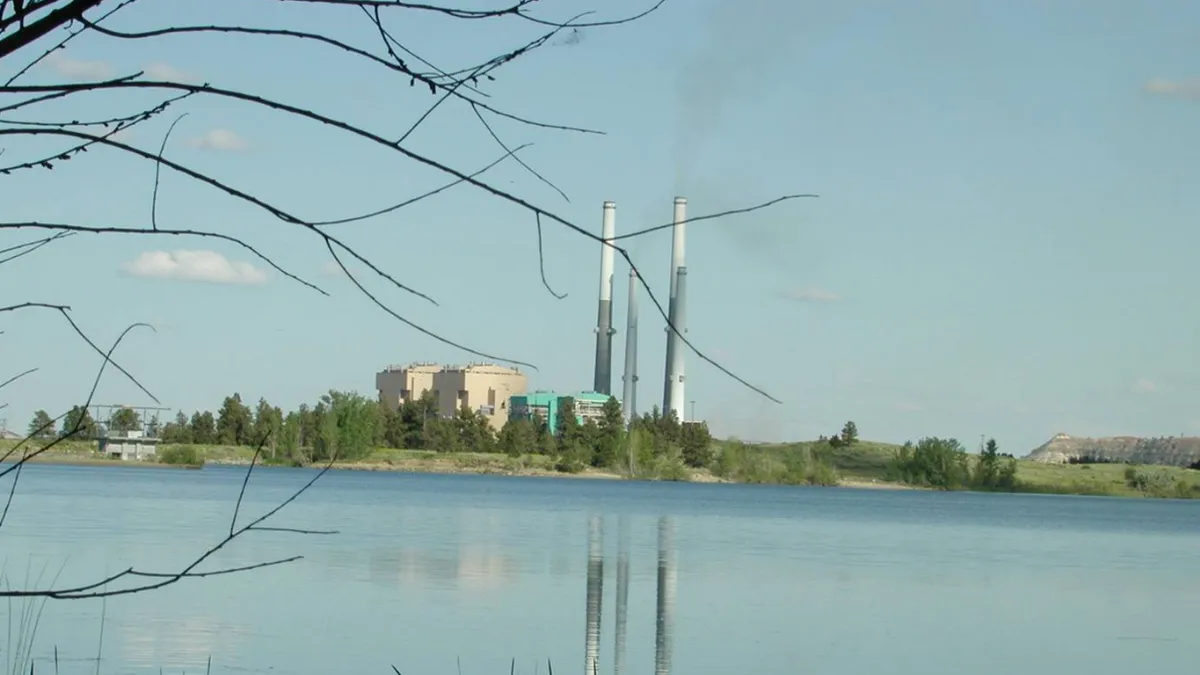Dive Brief:
- Northwestern Energy on Tuesday announced a plan to purchase Puget Sound Energy's (PSE) 25% share of Montana's coal-fired Colstrip Unit 4 for just $1, helping the utility to meet a winter peak capacity shortfall and saving customers millions, compared to other supply options.
- If approved by the Montana Public Service Commission and Washington Utilities and Transportation Commission, Northwestern would acquire 185 MW of generation but also sell 90 MW back to PSE for the next five years. In a related deal, NorthWestern will acquire part of PSE's interest in the 500 kilovolt Colstrip Transmission System.
- The sale helps PSE reduce its coal fleet by 50%, five years ahead of a Washington state requirement for electric utilities to eliminate coal-fired generation from their portfolios. NorthWestern is also working to add cleaner energy resources and plans to reduce the carbon intensity its Montana generation 90% by 2045.
Dive Insight:
Both utilities say the deal helps to enable a cleaner energy future, but environmental advocates appear doubtful. According to the Sierra Club, the deal will likely extend the life of a major regional polluter.
Doug Howell, a senior campaign representative for the Sierra Club, said the deal undermines the intent of Washington’s clean energy commitments. The state's Clean Energy Transformation Act requires electric utilities to eliminate coal-fired electricity from their portfolios by 2025.
“Allowing our state’s largest utility to cut and run from its mistakes isn’t leadership," Howell said in a statement. "By selling the Colstrip plant to an out-of-state polluter rather than guiding it to an orderly retirement, Puget Sound Energy is enabling more climate disruption, more dangerous wildfires and more extreme drought in Washington."
Howell said PSE should work with other owners to set a date for retiring the plant. Northwestern officials say they want to buy the plant in part to have a greater say in determining its future.
If the deal goes through, NorthWestern Energy would own 55% of Colstrip Unit 4 and Montana would have "a better voice on how the plant will be operated into future," NorthWestern Energy President and CEO Bob Rowe said in a call with reporters.
Rowe said the generation is needed to meet a winter peaking capacity shortfall. Currently, Northwestern meets those needs through purchases on the open market.
"Basic energy resources can be relatively inexpensive, but capacity resources can be extremely expensive," Rowe said. "It doesn't take a take a lot of bad days to burn through millions of dollars purchasing power at the peak."
Acquiring the larger stake in Colstrip Unit 4 does not solve NorthWestern's capacity shortage, but the utility said it will meet about 25% of the overall need while Montana transitions to more carbon-free energy sources.
According to NorthWestern, the purchase would have a net-zero impact on customer bills while generating $5 million in annual benefits that would be put towards future decommissioning costs associated with its existing ownership. PSE will remain responsible for its presale 25% ownership share of "all costs for remediation of existing environmental conditions and decommissioning regardless of when Colstrip Unit 4 retires," Northwestern said.
The Sierra Club expressed doubt that the decommissioning cost calculations would be so simple.
"The sale could also lead to increased future costs to PSE customers by introducing uncertainty over which utility is responsible for the costs of cleaning up after groundwater contamination from coal ash ponds that have been leaking for decades," the conservation group said in a statement. The group also warned it could increase the likelihood that PSE winds up building gas-fired plants in a few years when the plant is finally retired.
PSE said its coal portfolio will drop by 307 MW in January when plant operator and co-owner Talen Energy closes Colstrip Units 1 and 2. The utility will continue to be one of five owners of Colstrip Unit 3, which provides about 185 MW to the utility’s customers.
"Getting out of coal is what our customers have been asking for and what we’ve been working on for years," a PSE official said in an email. "Today’s deal allows us to move further and faster to supply clean energy for our customers by eliminating nearly 50 % of coal from our portfolio years ahead of schedule."
NorthWestern officials stressed the financial benefits, noting that building a gas-fired plant of the equivalent capacity could cost approximately $240 million while wind resources combined with battery storage "could cost several billion dollars and still not provide equivalent capacity."
Solar resources by themselves are not capable of meeting Montana winter peaks, Northwestern said.
"If NorthWestern Energy would have had the additional 95 MW of power from Colstrip Unit 4 in our portfolio last winter, this would have saved our customers about $4 million over just four days during a particular cold blast," Vice President Supply and Montana Government Relations John Hines said in a statement.














